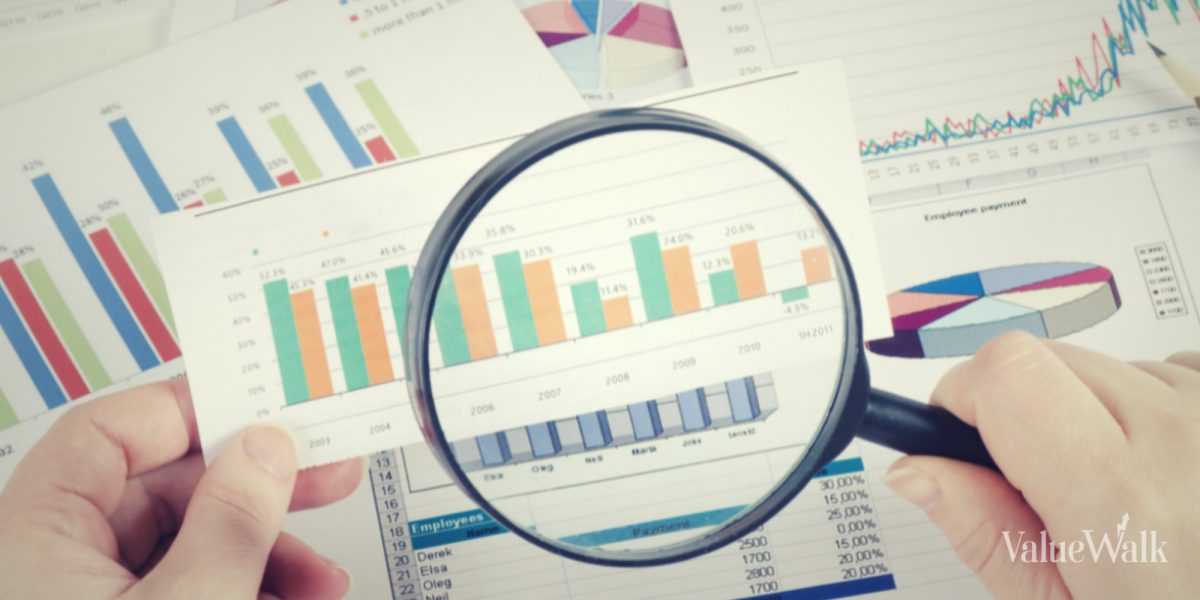If you have 100k to invest, you are well-positioned to secure your financial future.
For that to happen, all you need to do is put your 100k to work and invest it wisely. With this much cash, you’ll have numerous investing options, but the best way to invest 100k will eventually depend on your goals, risk tolerance, and time horizon.
In this guide, we will provide you with some considerations on what to do with 100k and what you’ll need to consider before investing.
What to do before you invest 100k
You may be eager to put your hard-earned money to work, but before that, you must ensure that your financial health is in good order. Taking into account the following factors will help you do that.
Check your tax liabilities
It is recommended that you pay any outstanding tax liabilities before investing 100k. Depending on how you earned your money in the first place, you may have some tax due on it.
Even if a small tax liability is unpaid, you must pay it first. If not, with fines, penalties and compounding effect, this small tax liability may grow big enough to eat away your retirement pot.
You can seek professional advice on this, or simply set aside some funds to pay the liabilities.
Tip: If you’re starting with a small investment pot, you might think being tax-conscious is unnecessary. Remember, your goal is to achieve significant growth over a long period of time, so start as you mean to carry on.
Settle any outstanding debts
In many cases, the best use of spare funds is to pay off debt. This doesn’t mean that you need to be debt-free before investing, but it’s best to aim to pay down high-interest debts, such as credit card debt.
One easy way to figure out the debts that you need to eliminate first is to list out all existing debts, including credit card debt, student loans, mortgages and others. If you expect your investment return to be lower than the interest rate on your debt, you will be better off paying down that debt.
For instance, the average credit card interest rate is 22.77%, which is significantly more than the average stock market return. A car loan is another debt that you should try to pay down early, as they also carry high payments.
Ensure you have a rainy day fund
It is sensible to have some cash stashed in an accessible savings account for emergencies. Ensure that you have about six months’ worth of living expenses to fall back on in case of unexpected expenses or a sudden loss of regular income.
Even if you have a secure job, always keep in mind that you might, for example, have to take a long leave of absence to handle a family emergency. Having a rainy day fund prevents you from withdrawing money from your portfolio.
It is recommended that you put your emergency fund in a high-yield savings account. This way, your money will earn you interest income, and you will be able to access it easily when needed.
Consult a financial advisor if you’re unsure
If you are unsure about the above factors, it’s best to consult a financial advisor. After taking into account your financial situation, a financial advisor will be in a better position to guide you on the next step.
For instance, if you don’t know much about your tax liabilities, including how much you will have to pay in fines and penalties if the liability remains unpaid, an advisor will give you details on how it could impact your future financial objectives.
Similarly, a financial advisor will be able to help you efficiently pay down high-interest debt, as well as guide you on where to park your rainy day fund.
Tip: Don’t be discouraged by the potential expense of hiring a financial advisor. Many advisors will deduct a percentage of your assets as payment, rather than an up-front or ongoing fee.
Key principles of investing 100k
The key principles of investing remain more or less the same whether you have 10k, 50k, or 100k. Knowing these principles will help you to select the best way to invest your hard-earned money.
Aim to mitigate risk
There are no investments without risk. Thus, understanding your comfort level with risk is important as it influences your investment choices.
In general, the higher the risk, the higher the potential to earn more return. However, this also means a higher potential for losses.
Investments in bonds, gold, and certificates of deposit are safe investments, but you won’t see spectacular growth. Stocks and real estate, on the other hand, can give you higher returns, but they tend to be riskier.
It is entirely up to you to decide how much risk you want to accept for a higher return. Once you are aware of your risk level, you can work to mitigate that risk through diversification (discussed below) and regular monitoring of your diversified portfolio.
If you can’t do all this by yourself, it is best to talk to a financial advisor.
Diversification is crucial
Having a diversified portfolio is pivotal to achieving your investment objectives. Try to ensure that no single stock or investment takes an outsized place in your portfolio.
Ideally, you should strive to invest across various asset classes to offset the weakness in one asset class with the strength of another. Also, try to diversify within the asset class, such as investing in stocks from different industries.
Along with investing in different classes, avoid investing all your money at one time. Instead, make regular investments over a period of time. This will help you to offset time-based risks, such as buying at a high price.
Overall, a diversified portfolio helps reduce the risk of your portfolio losing too much value due to the poor performance of one investment.
Consider taxation
When deciding what to do with 100k, your focus, of course, will be on selecting the investments with the best potential for returns. Though there’s nothing wrong with this, you also need to consider secondary issues such as fees and tax liabilities. This will help you to maximize your overall returns.
Your investment cost will include expense ratios for mutual funds and ETFs (exchange-traded funds), trading fees for buying and selling stocks, asset management fees paid to the advisor, and other miscellaneous expenses. You must try to invest in funds and select brokerage accounts that will help you to minimize these costs.
Similarly, your tax liability is usually determined if you are investing in a taxable brokerage account or a tax-advantaged retirement account. Also, how long you hold investments impacts your tax liability. A tax-advantaged account, such as a 401(k) or IRA, will allow you to defer taxes until you withdraw from it during retirement.
Best way to invest 100k in 2024
Now that you have addressed the above concerns, you are ready to proceed with choosing the best ways to invest 100k.
Investing in individual stocks
Investing in stocks is a great way to diversify your portfolio as you get an opportunity to invest in different companies and industries. More importantly, stocks can also give you strong returns.
In addition to strong returns, such investments are relatively liquid. This means you will be able to access your money much faster than most other investors.
A relatively low barrier of entry is another advantage that you get from the stock market. Regardless of how much capital you have, if you aren’t fully confident, you can start with as little as a few dollars.
Investing in stocks can carry a high risk, but you can minimize this by conducting detailed analyses of the stocks that you plan to invest in.
Beyond this, It is recommended that you consider dividend-paying stocks for your portfolio. This could provide you with some additional returns, which you can reinvest.
The brokerage account you select also plays an important role. Remember to select a broker with a minimum or zero commission and one that provides data and research to help you pick your individual stocks.
Tip: Be cautious of stock market tipsters. The internet is full of advice on what will be ‘the next’ Tesla or Apple, but chasing these tips can be risky. Try to stick to the advice of professionals, and if you are curious about a tip you’ve found online, be sure to research it thoroughly before committing.
Index and ETF funds
Consider investing in Index and Exchange Traded Funds (ETFs) if you want to avoid the stress of picking individual stocks. Such funds contain a variety of stocks and are a simple way to diversify your portfolio.
ETFs can track entire indexes, such as the S&P 500. Similar to stocks, they are bought and sold on exchanges and their prices fluctuate throughout the trading session. ETFs have lower expense ratios. Investors can also earn dividend income based on ETFs, which they can further reinvest in the stock market.
Index funds track the performance of a specific market index and trade once daily after the market closes. They offer both growth and dividend options, thereby allowing investors to choose on the basis of their risk appetite.
Index funds are managed by fund managers to ensure the maximization of profit, and thus, have higher management fees and Asset Management Charges (AMC) charges.
Invest in property
Depending on your location, 100k could be enough for a hefty deposit towards a property, or even enough to buy an entire property.
You can either buy a home for yourself to live in, or buy a property, renovate and resell it. If you are looking for a passive income, you can buy a property and rent it out.
Whichever option you select, keep in mind that there may be plenty of additional costs, such as insurance, maintenance, tax, and more. You can avoid these costs and still invest in real estate through Real Estate Investment Trusts (REITs).
A REIT is a fund company that owns income-generating properties. Shares of most REITs trade on the stock exchange. So, investing in a REIT is like investing in a portfolio of properties, but without the hassle of buying the property yourself.
Since REITs are, by law, required to distribute at least 90% of their taxable income, they usually pay more dividends than most dividend-paying stocks.
Retirement and pension accounts
Maxing out your retirement and pension accounts is also a good outlet for your 100k. You can put your money into an existing pension plan or start a private pension. Such investments offer tax relief on your contributions, as well as significantly boost your savings pot.
Some of the best investment options to save for retirement are Individual Retirement Accounts (IRA), 401(k) and other employer-sponsored savings plans. You can start by contributing enough to your 401(k) so as to get a full employer match, and then max out your IRA. Getting a matching contribution from the employer is effectively free money.
Before you invest in retirement accounts, it is important that you are aware of the contribution limit. In the U.S., for instance, the IRA contribution limit is $7,000 in 2024 ($6,500 in 2023), while 401(k) employee contributions are capped at $23,000 ($69,000 cap on combined employee and employer contribution).
Keep in mind that tax benefits on retirement and pension accounts may be lucrative, but they offer less flexibility as you won’t be able to access funds until later in life.
Conclusion
With 100k you have a plethora of options to invest. You can park it somewhere safe, like in retirement accounts to get income and tax relief; or invest in stock market or real estate to earn higher returns.
At the end of the day, it is up to you to decide on the best way to invest 100k. This is because the financial circumstances of every individual are different.
Also, keep in mind there is no magic wand or secret formula that can make your investment grow within seconds. When it comes to investing, it is all about strategy and making the most of the time. The more time you give, the better it is for your investment.
If you are too busy or lacking in confidence, you can always refer to a financial advisor, who will be able to guide you on the best way to invest 100k.
Methodology
Our suggestions for the best way to invest 100k are based on a logical approach. We first want you to strengthen your internal finances by retiring high-interest debt and save for emergencies, and using the remaining to invest.
The investment options that we have listed are based on a tried and tested approach. We studied the portfolio of many investors in different age groups to note down the investments that have worked for them, and have made our suggestions accordingly.
FAQs
How to turn 100000 into 1 million?
Turning 100000 into 1 million may appear a daunting task, but you can easily achieve the target if you make the right decisions. To quickly turn 100000 into 1 million, it is recommended that you invest in index funds, growth stocks, dividend stocks and small-cap value stocks.
Where should I put 100k in the UK?
Selecting the best investment for you depends on your financial goals, risk profile and time horizon. If you need an answer then buy-to-let rental property could prove the best way to invest 100k in the UK. Most investors have benefitted from such an investment.
What is the best investment for 100k?
There are plenty of options if you are looking for the best investment for 100k, such as investing in stocks, ETFs, index funds, retirement accounts, real estate and more. You, however, need to select the best investment for 100k based on your financial objectives and risk profile.
Where is the safest place to invest 100k?
If you are looking for the safest place to invest 100k it means investing in options with low or no risk. There are plenty of safe options to invest 100k, such as savings accounts, retirement accounts, government bonds, CDs, gold and more.
References
- https://www.irs.gov/retirement-plans/plan-sponsor/types-of-retirement-plans
- https://professional.dce.harvard.edu/blog/real-estate-investing-for-beginners-5-skills-of-successful-investors/
- https://pages.stern.nyu.edu/~adamodar/New_Home_Page/datafile/histretSP.html
- https://www.fidelity.com/learning-center/investment-products/etf/what-are-etfs
- https://www.irs.gov/taxtopics/tc559#:~:text=A%203.8%20percent%20net%20investment,income%20above%20applicable%20threshold%20amounts.












